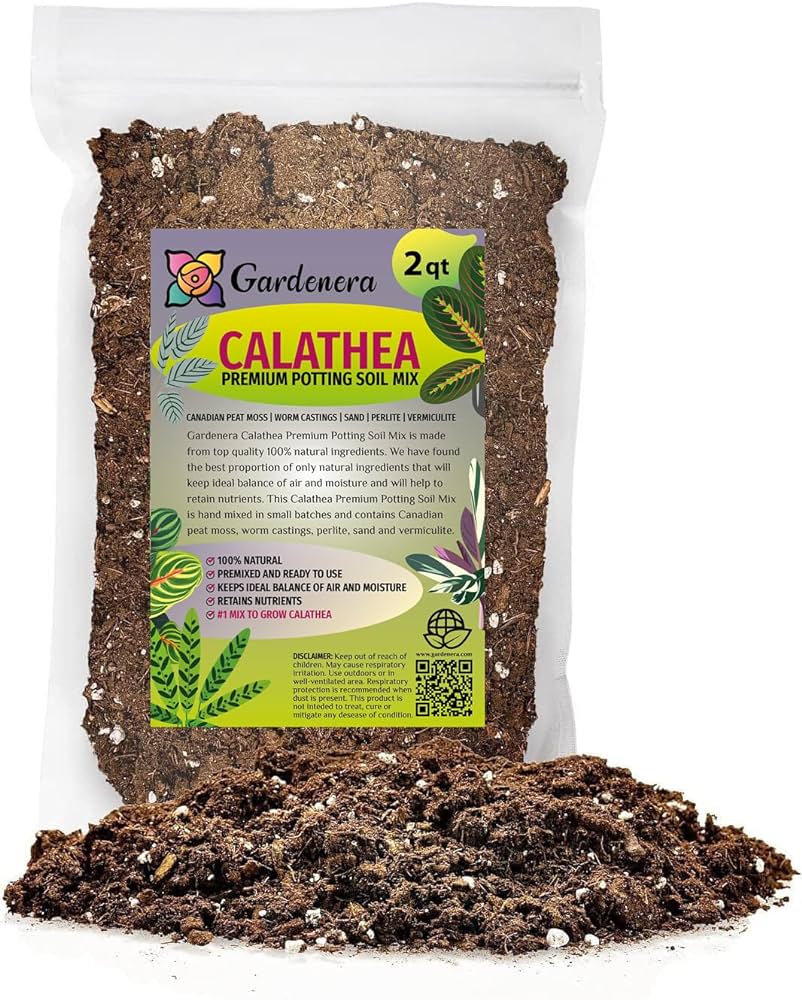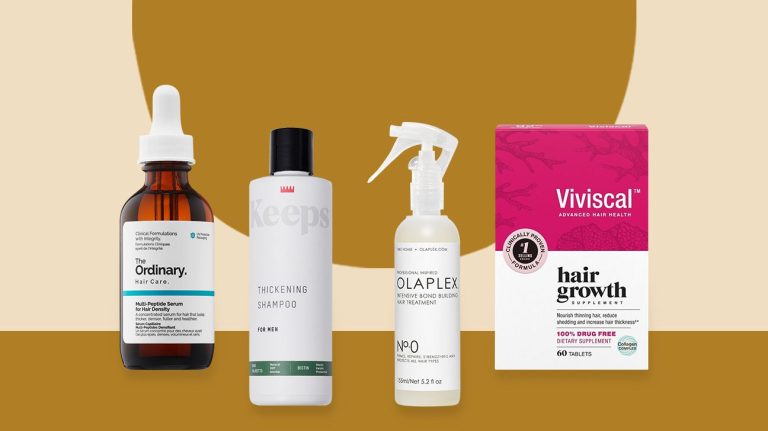9 Best Soil Mixes for Thriving Monstera Plants: Top Picks and Tips
If you’re a proud owner of a Monstera, you know how crucial the right soil is for its health and growth. These tropical beauties thrive in specific conditions, and the soil you choose can make all the difference. Picking the best soil ensures your Monstera gets the right nutrients, drainage, and aeration it needs to flourish.
Characteristics of Ideal Soil for Monstera
To keep your Monstera thriving, the soil must meet specific criteria that cater to its needs.
Drainage Capabilities
Effective drainage is crucial for Monstera plants. The soil should allow water to flow through easily to prevent root rot. Consider adding perlite or pumice as these materials improve soil aeration and water drainage.
Nutrient Content
Nutrient-rich soil supports healthy growth. A good mix includes organic matter like compost or peat moss, which supplies essential nutrients. This helps Monstera plants develop strong roots and vibrant leaves.
pH Levels
Optimal pH levels ensure your Monstera can absorb nutrients efficiently. The ideal pH range is slightly acidic to neutral, between 5.5 and 7. You can test your soil’s pH using a home kit and adjust it with amendments if necessary.
1. Organic Indoor Potting Mix
Organic Indoor Potting Mix is an excellent choice for your Monstera due to its well-balanced properties. This mix is designed to meet the specific needs of indoor plants, including your monstera.
Features Suitable for Monstera Growth
Ensures drainage with components like perlite or pumice. Good drainage prevents the roots from becoming waterlogged, reducing the risk of root rot. Enhances nutrient content with organic matter like compost and peat moss. These ingredients promote strong roots and lush foliage. Maintains pH levels between 5.5 and 7. Proper pH levels ensure efficient nutrient uptake, keeping your monstera healthy.
Pros and Cons
Pros:
- Offers excellent drainage, reducing water retention that can harm roots.
- Contains rich, organic matter, boosting nutrient availability.
- Balances pH levels, aiding in optimal nutrient absorption.
- Can be pricier than other soil types due to quality ingredients.
- May require more frequent watering as it drains well.
Choosing Organic Indoor Potting Mix helps your monstera thrive, meeting its unique needs for drainage, nutrients, and pH balance.
2. Specialized Aroid Mix
A specialized aroid mix is another excellent choice for Monstera plants. This mix is specifically designed to meet the unique needs of aroids, helping your Monstera thrive.
Why It Works Well for Monstera
It provides superior drainage, preventing root rot. Monstera plants need a well-draining soil to avoid waterlogged roots, and aroid mixes typically include bark, perlite, and charcoal, which are perfect for this purpose. Adds essential nutrients, promoting vigorous growth. Components like aged bark and worm castings deliver essential nutrients that bolster the health and growth of Monstera plants. Mimics natural conditions, fostering a healthy root environment. The chunky texture of the mix allows for good air circulation around the roots, replicating the natural environment of tropical rainforests where Monstera naturally grows.
Pros and Cons
Pros:
- Promotes Root Health: The mix ensures excellent air circulation and prevents water retention, crucial for healthy roots.
- Nutrient-Rich: Aroid mixes often contain organic materials like worm castings, providing essential nutrients for robust growth.
- Natural Environment: Replicates the natural growing conditions of Monstera, enhancing overall plant health.
- Cost: Specialized aroid mixes can be more expensive than regular soils due to their premium ingredients.
- Availability: This mix may not be readily available in all garden centers, requiring purchase from specialized stores or online.
- Customization: The specific mix ratio might require adjustments based on your Monstera’s individual needs, which may necessitate some trial and error.
A specialized aroid mix can significantly enhance growth and vitality for your Monstera, despite a few potential challenges with cost and availability.
3. Homemade Blend for Monstera
Creating your own soil blend for Monstera can be both satisfying and effective. Let’s break down how to do this and the pros and cons of DIY soil.
How to Create Your Mix
Combine equal parts of peat moss, perlite, and pine bark. Mix thoroughly to ensure even consistency. Include a handful of activated charcoal to enhance drainage and prevent mold. For added nutrients, incorporate a small amount of worm castings or compost. Adjust the ratios slightly based on your plant’s specific needs, but this blend should provide excellent drainage and aeration while retaining enough moisture.
Pros and Cons
Creating your own mix gives you control over ingredients and quality. Customizing soil is cost-effective, as you can buy ingredients in bulk. It also allows you to tailor the mix to your plant’s needs. However, this process can be time-consuming and requires a basic understanding of soil components. Ensuring balance and consistency might take practice. Despite these challenges, many find that the benefits outweigh the effort involved in making a homemade blend.
4. Orchid Bark Mix Enhancements
Incorporating orchid bark into your Monstera soil mix offers numerous benefits. Let’s explore its advantages and weigh the pros and cons.
Benefits of Adding Orchid Bark
Boosts Drainage: Orchid bark improves soil drainage, preventing root rot in Monstera plants.
Enhances Aeration: The chunky texture of orchid bark creates air pockets, ensuring roots get enough oxygen.
Maintains Moisture Balance: It retains moisture while allowing excess water to drain, creating an ideal environment for Monstera growth.
Adds Organic Matter: As it decomposes, orchid bark enriches the soil with beneficial organic matter, promoting healthy root development.
Pros and Cons
Pros
- Improves Soil Structure: Orchid bark contributes to a better soil structure, supporting overall plant health.
- Promotes Aeration: The bark’s texture improves air circulation around the roots.
- Prevents Overwatering: It aids in maintaining the right moisture levels, reducing the risk of overwatering.
- Long-Lasting: Orchid bark decomposes slowly, reducing the need for frequent soil replacements.
- Costly: High-quality orchid bark can be more expensive than other soil amendments.
- Nutrient Deficiency: Decomposing bark could temporarily lock up nitrogen, necessitating additional fertilization.
- Consistency Issues: If not mixed properly, orchid bark may cause uneven soil moisture levels.
Indulging in these enhancements ensures your Monstera thrives with optimal growth conditions, balancing the key elements for robust health.
5. Peat-Based Soil Mix
Using a peat-based soil mix is a popular choice for Monstera plants. Let’s explore why it’s beneficial and what to consider.
Advantages for Monsteras
Promotes Aeration: Peat moss increases soil aeration, ensuring roots get enough oxygen.
Retains Moisture: It holds water well, keeping the soil consistently moist, which Monstera plants prefer.
Provides Essential Nutrients: Peat moss contains organic matter that feeds the plants and supports growth.
Pros and Cons
Pros
- Enhances Water Retention: Peat-based soil keeps the soil evenly moist, reducing the need for frequent watering.
- Improves Soil Structure: It adds texture to the soil mix, ensuring good drainage and preventing compaction.
- Balanced pH: It often maintains a slightly acidic pH which Monsteras thrive in.
- Environmental Impact: Harvesting peat moss can harm ecosystems, making it less sustainable than other options.
- Decomposition Rate: Peat breaks down over time, requiring periodic replacement to maintain soil quality.
- Cost: Peat-based mixes can be more expensive compared to other soil amendments.
Using a peat-based soil mix can significantly impact your Monstera’s health and growth, but weigh the pros and cons before deciding.
6. Perlite-Enriched Mix
Adding a perlite-enriched mix to your Monstera’s soil can significantly improve its overall health. Perlite offers various benefits that ensure your Monstera thrives.
Importance of Aeration to Roots
Ensuring proper aeration to roots is crucial for Monstera health. Perlite creates air pockets within the soil, preventing compaction and allowing roots to breathe. Well-aerated soil facilitates gas exchange, enhancing nutrient uptake and promoting robust growth.
Pros and Cons
Perlite brings several advantages to Monstera soil. First, it improves drainage, reducing the risk of root rot. Second, the added aeration promotes healthy root development. Third, perlite is a lightweight additive, making it easy to handle and mix.
However, there are some downsides. Perlite tends to float to the soil surface when watered, which can be messy. Also, it doesn’t provide any nutrients, so you’ll need to combine it with other nutrient-rich soil components. Lastly, perlite can be dusty; wear a mask while mixing to avoid inhalation.
Incorporating a perlite-enriched mix creates a balanced environment for Monstera plants, enhancing growth and ensuring healthy roots.
7. Coconut Coir Potting Mix
Coconut coir potting mix is increasingly popular among plant enthusiasts for its sustainability and effective use in Monstera care.
Eco-Friendly Choice for Monsteras
Coconut coir is an eco-friendly alternative to peat moss. Made from coconut husks, it’s a renewable resource. Unlike peat, which takes hundreds of years to form, coconut coir is a byproduct of the coconut industry. It retains moisture well, providing an optimal environment for your Monstera without overwatering.
Pros and Cons
Pros:
- Retains Water: Coconut coir holds moisture like a sponge while still draining excess water, preventing root rot.
- Sustainable: It’s eco-friendly and renewable, reducing your carbon footprint.
- pH Neutral: Unlike peat, coconut coir has a neutral pH, making it ideal for Monstera plants and easy to amend if needed.
- Aeration: Its fibrous structure improves aeration, promoting robust root growth.
- Nutrient Deficient: Coconut coir is low in essential nutrients, so you’ll need to supplement with fertilizers.
- Processing: Some coir products may have high salt content. Make sure to rinse and buy from reputable sources.
- Cost: It can be more expensive than peat-based mixes, depending on the quality and brand.
8. Charcoal-Infused Potting Mix
A Charcoal-Infused Potting Mix can be a game-changer for your Monstera plants. It’s not just about nourishment; it’s about creating an optimal growing environment.
Detoxifying Properties for Soil Health
Charcoal boosts soil health by detoxifying it. It absorbs impurities, making your soil cleaner and safer for your Monstera. Activated charcoal can bind toxins, pathogens, and heavy metals, preventing any harmful substances from affecting your plant. This leads to healthier roots and more robust growth.
Pros and Cons
- Improves Drainage: Charcoal helps with drainage, avoiding waterlogged roots.
- Odor Control: It neutralizes odors caused by soil bacteria.
- Nutrient Retention: Charcoal holds nutrients, releasing them gradually for steady plant growth.
- Cost: Charcoal-infused mixes can be pricier than standard options.
- Occasional Ineffectiveness: Not all charcoals are created equal; quality can vary, affecting effectiveness.
- Messy: Handling charcoal can be a bit messy, requiring care during mixing.
9. Worm Castings Blend
Worm castings blend can be a game-changer for your Monstera. Let’s dive into why this organic additive stands out.
Nutritional Benefits for Monstera
Worm castings enrich soil with vital nutrients that promote healthy Monstera growth. They contain essential elements like nitrogen, phosphorus, and potassium which enhance root development, leaf growth, and overall plant vitality. These castings also improve soil texture, enhancing aeration and moisture retention. Your Monstera will appreciate the well-balanced, nutrient-rich environment facilitated by worm castings.
Pros and Cons
Pros:
- Boosts Nutrient Levels: Worm castings are packed with essential nutrients required for Monstera’s growth.
- Enhances Soil Structure: They improve soil’s texture, enabling better aeration and moisture retention.
- Natural Fertilizer: As an organic additive, they provide a sustainable, chemical-free option for fertilizing your Monstera.
- Improves Microbial Activity: Worm castings promote beneficial microbial activity, leading to healthier soil and plants.
- Cost: Worm castings can be pricey compared to synthetic fertilizers.
- Inconsistent Quality: Not all worm castings are created equal; quality can vary based on the source.
- Limited Supply: They might be hard to find in large quantities, limiting their use for extensive gardening projects.
Integrating a worm castings blend into your Monstera’s soil can significantly boost plant health, making it a worthy consideration despite the potential drawbacks.
Conclusion: Selecting the Right Soil
Choosing the best soil for your Monstera plants is crucial for their health and growth. Each soil mix offers unique benefits, from enhanced aeration to improved moisture retention. While options like Organic Indoor Potting Mix and Orchid Bark Mix provide excellent drainage, a Worm Castings Blend stands out for its rich nutrient profile.
Remember that the right soil mix creates a balanced environment, promoting robust roots and vibrant foliage. Tailor your choice based on your plant’s specific needs and your local availability. By selecting the optimal soil, you’re setting the stage for a thriving Monstera that’s both beautiful and healthy.






